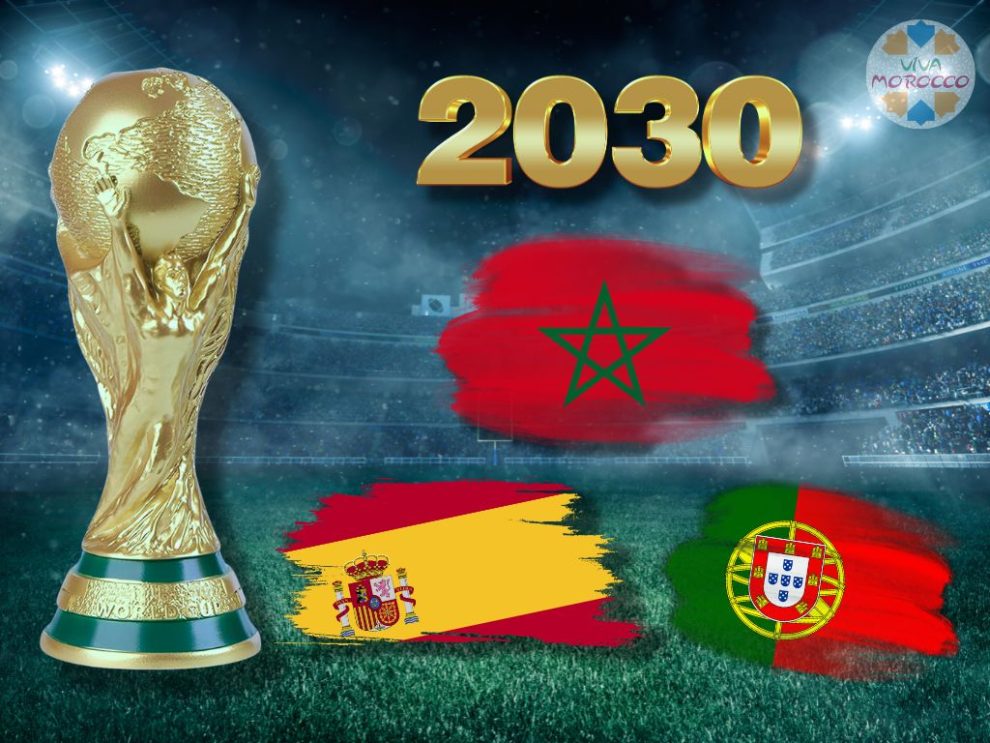The world of football is set for a groundbreaking and historic event as the 2030 FIFA World Cup is confirmed to be hosted on three different continents. Morocco, Portugal, and Spain emerged victorious in the bid to host the 48-team tournament, marking the first time in the history of the World Cup that matches will be played across multiple continents. However, the decision came with its share of surprises, controversies, and significant implications for the future of global football.
An Unexpected Triumph for Morocco, Portugal, and Spain
In a unanimous decision, the FIFA Council selected the Morocco-Portugal-Spain bid as the sole candidate to organize the 2030 World Cup. This unexpected choice left many seasoned FIFA observers and football fans around the world in awe. Morocco, in particular, celebrated this victory after its remarkable performance in the 2022 World Cup, where they became the first African team to reach the semi-finals.
Morocco’s King Mohammed VI expressed his pleasure at FIFA’s decision, emphasizing the importance of the event for the Moroccan people and football fans worldwide. This success symbolizes not only a significant sporting achievement but also a triumph for unity and cooperation among nations.
A Historic Journey Across Three Continents
The 2030 World Cup will be a unique and unprecedented experience for fans and players alike. Six countries—Morocco, Portugal, Spain, Uruguay, Argentina, and Paraguay—will be the hosts, and each will automatically qualify for the tournament. The tournament’s format, spread across continents and time zones, is a first in the history of the World Cup.
However, the decision to hold matches on different continents did not come without criticism. Climate groups expressed concern over the environmental impact of a tournament that will involve extensive travel. FIFA will need to address these concerns by implementing sustainable practices and minimizing the carbon footprint associated with such a global event.
The Road to Saudi Arabia 2034
Interestingly, the decision to award the 2030 World Cup to Morocco, Portugal, and Spain opened the door for Saudi Arabia to announce its bid for the 2034 tournament. Initially expected to lead a joint bid with Greece and Egypt for the 2030 event, Saudi Arabia decided to stand aside. Now, with FIFA inviting bids from Asia and Oceania for 2034, Saudi Arabia has seized the opportunity to bid alone. The anticipation for these two consecutive tournaments in the Middle East is palpable, and it reflects FIFA’s commitment to global inclusivity.
The Kingdom of Morocco fully supports Saudi Arabia’s bid to host the 2034 FIFA World Cup, citing strong ties between King Mohammed VI and King Salman bin Abdulaziz Al Saud. Morocco is confident in Saudi Arabia’s ability to host the event due to its development progress and organizational capabilities
A Message of Unity and Inclusion
FIFA President Gianni Infantino aptly described the selection of Morocco, Portugal, and Spain as “a great message of peace, tolerance, and inclusion” in a divided world. Football has always had the power to unite nations, transcend boundaries, and foster mutual understanding. This historic decision reinforces football’s role as a global unifier.
A Centennial Celebration in Uruguay
As an homage to the first World Cup held in 1930 in Uruguay, FIFA announced that the opening match of the 2030 tournament would take place at the Estádio Centenário in Montevideo. This choice pays tribute to the rich history and heritage of the World Cup, emphasizing its importance as a global sporting event.
In conclusion, the selection of Morocco, Portugal, and Spain as hosts for the 2030 FIFA World Cup marks a significant turning point in the history of the tournament. With matches played on three continents, the event promises to be a unique and memorable celebration of football’s global appeal. As preparations for this historic tournament get underway, the world eagerly awaits the unity, excitement, and shared passion that the World Cup always brings to the global footballing community.





